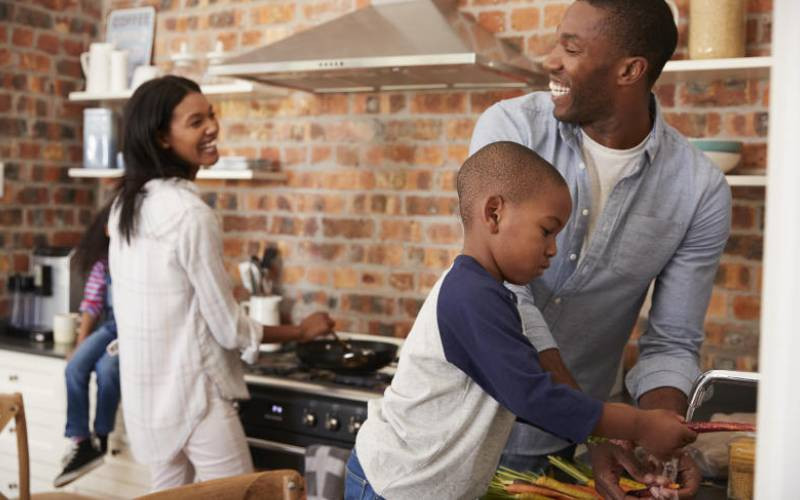
Being a parent is a full-time commitment, filled with endless responsibilities, but in the rush of daily life, one thing often gets forgotten: you.
In a world where parents are expected to juggle jobs, home life, and emotional support for their children, the reality is clear - parenting without self-care leads to burnout.
But what if prioritising your well-being is the key to raising happy, resilient children? Experts say it is not selfish, it is essential.
Meet Mercy and David Mwangangi.
“At first, we thought being hands-on parents meant giving up everything else. We were exhausted, emotionally drained, and frustrated,” says Mercy, a mother of two.
David, her husband, nods. “We barely had time for ourselves, let alone each other. We lost sight of what made us happy outside of parenting.”




They discovered short walks together, scheduling solo ‘me-time,’ and embracing self-care and everything shifted.
“Now, we feel more connected, not just as parents, but as partners. Self-care helped us become calmer, more present, and emotionally stronger,” says David.
John Mbaisi a single father of one, says: “Honestly, I never thought about self-care. My focus was always on providing for my daughter - work, school runs, house chores, and I did not realise how drained I was until I hit burnout.”
After falling sick due to exhaustion, John had no choice but to slow down as advised by his doctor.
“I learned that if I collapse, everything collapses. Now, I make time for simple joys such as reading, walking, and breathing in silence. It makes a difference.” “For years, I thought good parenting meant putting my children first, I ignored my needs, skipped meals, barely slept, and pushed through exhaustion. Then one day, I broke down,” says Teresa, a mother of three.
A wake-up call from a close friend made her rethink everything. “She told me, ‘Your children need a strong, happy mother, not a burnt-out one, and that changed my perspective. I started small - sitting outside with tea, journaling, and listening to music. Now, I feel lighter, happier, and more present.”
Why parental self-care matters
“A stressed-out, exhausted parent cannot be fully present for their child,” says Catherine Ochieng, a Child Psychologist. “Taking care of yourself directly impacts your ability to nurture, guide, and emotionally support your child.”
Research shows that parents who practice self-care experience less stress and anxiety, leading to a calmer home environment, better emotional resilience, and handling challenges with patience and clarity.
Stay informed. Subscribe to our newsletter
They have healthy relationships with their children because they feel mentally recharged.
Self-care is not selfish.
Ochieng says many parents feel guilty when they focus on themselves, believing that every moment must be dedicated to their children. However, she says, self-care is not about neglecting responsibilities. It is about ensuring you have the energy to give your best to them.
“Think of it like an oxygen mask on a plane—you must secure your mask before helping others,” says Lisa Wanjiro, Family Counsellor and Coach.
She says self-care does not require grand gestures because it is about small, intentional habits that restore balance.
Ochieng says, for instance by taking a daily 10-minute walk is a simple way to clear the mind and recharge, and so is reading or journaling, creating space for reflection and emotional processing, and a moment of silence with tea or coffee lets the mind reset before chaos begins.
Other ways of administering self-care are by connecting with friends, sharing laughs, thoughts, and real-life conversations, prioritising sleep, ensuring deep rest for better mental and emotional health, and music therapy - using soothing or energising music to lift the mood.
“Self-care is not complicated; it is about finding small ways to reconnect with yourself,” says parenting coach Wanjiro.
Self-care as a parenting skill
Experts say when parents model self-care, they teach children valuable lessons about mental wellness. Children learn that emotions matter, and taking care of mental health is normal.
Balance is key; not everything needs to be rushed or urgent, because self-worth is important, and setting boundaries is healthy.
“When children see their parents setting boundaries and prioritising wellness, they develop emotional intelligence and healthy coping skills,” says Ochieng.
Wanjiro says self-care is not an escape from parenting. It is part of it, and when parents take time to recharge, reflect, and reconnect with themselves, their ability to love, support, and guide their children strengthens. “A fulfilled parent creates a fulfilled child,” she says.